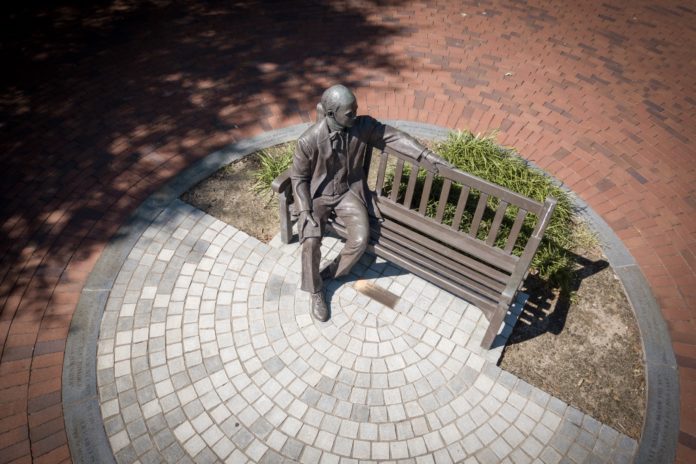MACON- As a part of the National Endowment for the Humanities Lecture Series, acclaimed authors and scholars Eric Klinenberg and Ellen Ruppel Shell will speak on two hot topics at Mercer University April 12 and 14. Both lectures are free and open to the public.
Klinenberg, author of Heat Wave: A Social Autopsy of Disaster in Chicago, (University of Chicago Press, 2002), will speak at 7:30 p.m. on Monday, April 12, in the Mercer University School of Medicine Auditorium. In his presentation entitled “Why Heat Waves are so Deadly: Urban Vulnerability from Chicago to Paris,” he will give insight into the social breakdown that occurred during the devastating heat wave in Chicago in July of 1995.
An assistant professor of sociology at New York University, Klinenberg is a Chicago native passionate about public and politically engaged social science. His book, Heat Wave: A Social Autopsy of Disaster in Chicago, was named Best Book in Sociology/Anthropology by the Association of American Publishers. The book was also listed as a favorite book selection by the Chicago Tribune in addition to receiving numerous other awards.
Ruppel Shell, author of The Hungry Gene: The Science of Fat and the Future of Thin (Atlantic Monthly Press, 2002), will speak at 7 p.m. on Wednesday, April 14, in the Mercer University School of Medicine Auditorium. She will discuss the roles genetics, pharmaceutical companies, the food industry and social class play in obesity. A panel discussion will immediately follow her presentation.
Ruppel Shell is a correspondent for The Atlantic Monthly and has written about science and medicine for The New York Times Magazine, Smithsonian, Discover, The Washington Post and The Boston Globe.
She is an associate professor of journalism and co-director of Knight Center for Science and Medical Journalism at Boston University. Winner of several writing awards, she has been a senior editor at several science publications, and science editor for PBS.
###










